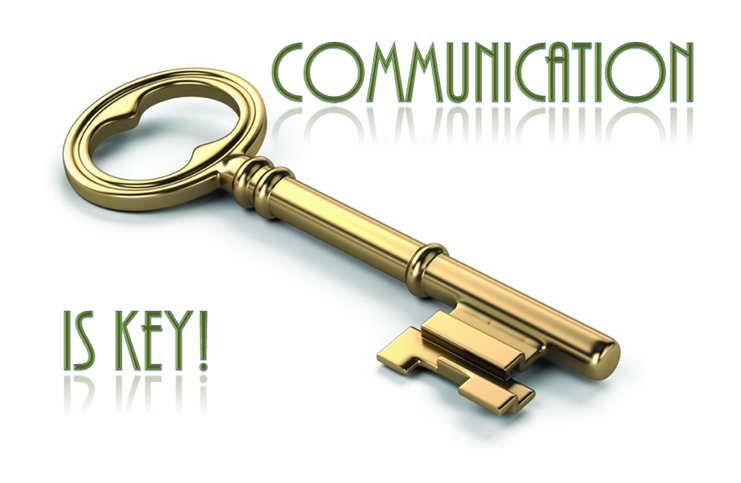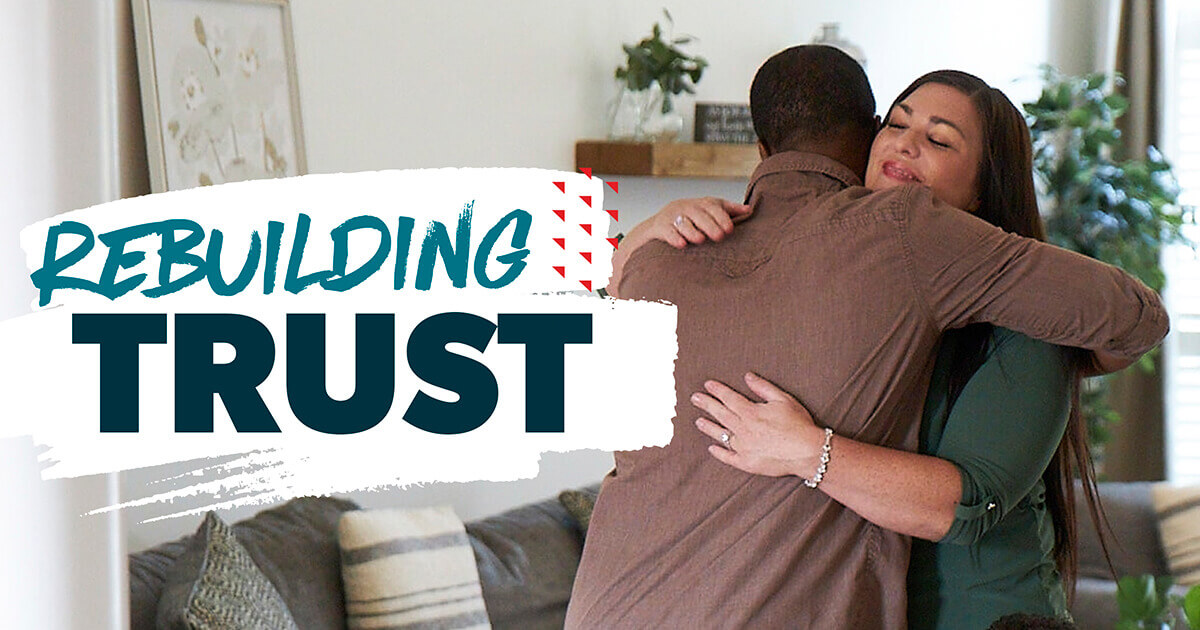Last Updated on May 2, 2024 by Silvy
Detecting Signs of Infidelity: A Comprehensive Guide
Let’s face it, infidelity is a painful reality that can shatter even the strongest relationships. It can leave you feeling confused, hurt, and betrayed.
But before you jump to conclusions, it’s important to navigate this sensitive situation with a clear head. This guide will equip you with the knowledge to detect signs of infidelity, understand the underlying causes, and explore the best course of action.
Is your gut whispering suspicions?
Have you noticed a shift in your partner’s behavior? Perhaps they’re working late more often, their phone habits seem secretive, or the intimacy you once shared has dwindled. While these can be indicators of infidelity, it’s crucial to approach the situation with reason.
This comprehensive guide will be your beacon in the storm, offering insights to help you distinguish genuine infidelity from temporary relationship hiccups.
We’ll delve into the emotional complexities of infidelity, explore common warning signs, and provide valuable resources to help you navigate this challenging time.
Remember, you’re not alone. Infidelity is a prevalent issue, and countless resources exist to support you. So, take a deep breath, and let’s embark on this journey together.
Here’s what we’ll cover in this guide:
- Understanding Infidelity: The Emotional Landscape
- Warning Signs of a Cheating Partner
- Digging Deeper: Is it Infidelity or Something Else?
- Communication is Key: Addressing Your Suspicions
- The Aftermath of Infidelity: Making Difficult Decisions
- Rebuilding Trust: Can Your Relationship Recover?
- Moving Forward: Healing and Self-Care
- Seeking Professional Help: When You Need Extra Support
- Frequently Asked Questions (FAQs) about Infidelity

Understanding Infidelity: The Emotional Landscape
Infidelity is a violation of trust that can trigger a rollercoaster of emotions.
You might experience:
- Shock and disbelief: “This can’t be happening!”
- Anger and betrayal: “How could they do this to me?”
- Sadness and grief: “Our relationship is over.”
- Guilt and shame: “Is it my fault?”
- Fear and insecurity: “Who am I? Can I trust anyone?”
These emotions are all valid. It’s important to acknowledge and process them in a healthy way.
Remember, you are worthy of love and respect. This betrayal doesn’t define you.
:max_bytes(150000):strip_icc()/Warning-signs-your-spouse-is-cheating-2300652-V1-6f25e933a9204c04af16c84ce5dec864.png)
Warning Signs of a Cheating Partner
While infidelity can manifest differently in every relationship, some common warning signs can raise a red flag.
However, it’s important to remember that these signs on their own aren’t definitive proof.
Here’s what to watch out for:
-
Changes in Communication: Is your partner suddenly less communicative, secretive about their phone, or dismissive of your questions? A shift in communication patterns, especially regarding increased secrecy or defensiveness, can be a cause for concern.
-
Increased Focus on Appearance: Has your partner taken a sudden interest in their appearance? Are they spending more time grooming, buying new clothes, or hitting the gym more frequently? This could be a sign they’re trying to impress someone new.
-
More Time Away From Home: Does your partner seem to be working late more often, taking unexplained trips, or making excuses for their whereabouts? Increased absences, especially unexplained ones, can be a potential indicator of infidelity.
-
Changes in Intimacy: Has your sex life become infrequent, less passionate, or even non-existent? A decline in intimacy, both physical and emotional, can be a sign of an affair, especially if it’s coupled with the above signs.
-
Financial Discrepancies: Are there unexplained charges on your bank statements, missing cash, or new debts you weren’t aware of? Unusual financial activity could be a sign your partner is spending money on someone else.
-
Change in Technology Use: Does your partner become overly protective of their phone, password changes, or suddenly shut down their computer when you enter the room? A shift in how they handle their devices, especially a heightened sense of privacy, can be suspicious.
-
Suspicious Phone Activity: Do you receive strange calls or texts on your partner’s phone? Are there late-night conversations they won’t tell you about? Unexplained phone activity, especially late-night calls or secretive texting, warrants investigation.
-
Emotional Distance: Has your partner become emotionally withdrawn, less affectionate, or seem generally distant? A noticeable shift in emotional connection, like a lack of interest in your day or feelings, can be a sign of infidelity.
-
Shifting Blame: Does your partner turn the tables on you, accusing you of being suspicious or insecure for no reason? This could be a deflection tactic, where they try to shift the blame onto you to avoid facing their actions.
-
Loss of Interest in Shared Activities: Does your partner seem disinterested in activities you used to enjoy together? A sudden lack of interest in shared hobbies or traditions could indicate their attention is elsewhere.
It’s important to remember that these signs can also point to other underlying issues in your relationship. Stress, work problems, or even health concerns can manifest in similar ways.
:max_bytes(150000):strip_icc()/200326338-001-56a5feba3df78cf7728ad148.jpg)
Digging Deeper: Is it Infidelity or Something Else?
Before jumping to conclusions, it’s crucial to differentiate between genuine infidelity and other factors impacting your relationship.
Here’s how to approach the situation with a clear head:
-
Consider the Context: Have there been recent stressors in your relationship, like financial difficulties, a family crisis, or communication breakdowns? These issues can sometimes lead to emotional withdrawal or changes in intimacy, which might be misinterpreted as infidelity.
-
Open Communication is Key: Instead of dwelling on suspicions, have a calm conversation with your partner. Express your concerns and ask open-ended questions to understand any underlying issues they might be facing. Active listening and honest communication are crucial in navigating this situation.
-
Look for Additional Signs: While some signs might raise red flags, infidelity often involves a combination of these behavioral changes. Look for a pattern of suspicious behavior, not just isolated incidents.
-
Trust Your Gut: While not always foolproof, intuition can be a powerful tool. If your gut feeling screams something’s wrong, it’s worth exploring further. However, avoid letting unfounded jealousy cloud your judgment.
Here are some alternative explanations for some of the warning signs:
-
Changes in Communication: Your partner might be stressed about work or facing personal challenges, leading to them being less communicative.
-
Increased Focus on Appearance: Perhaps your partner is simply trying to feel more confident or is embarking on a personal health journey.
-
More Time Away From Home: Increased workload, a demanding boss, or taking on new responsibilities could explain longer work hours.
-
Changes in Intimacy: Stress, health issues, or fatigue can all contribute to a decline in intimacy. It’s important to have an open conversation about these factors.
If, after careful consideration, you suspect infidelity, the next step is to address your concerns with your partner.
Communication is Key: Addressing Your Suspicions
Unearthing infidelity can be a harrowing experience. However, open and honest communication is vital in navigating this delicate situation.
Here’s how to approach the conversation with your partner:
-
Choose the Right Time and Place: Pick a calm and private moment when you’re both free from distractions. Avoid initiating the conversation when you’re feeling angry or emotional.
-
Start with “I” Statements: Focus on how their behavior is making you feel rather than accusing them directly. For example, “I feel hurt and confused when you work late so often lately” is more constructive than “You’re probably having an affair!”
-
Express Your Concerns: Clearly articulate your observations and the emotions they evoke. However, avoid making accusations or jumping to conclusions.
-
Be an Active Listener: Give your partner the space to explain their perspective without interrupting. Listen attentively to their response and try to understand their point of view.
-
Focus on Finding the Truth: The goal of this conversation is not to assign blame but to uncover the truth. Approach it with a genuine desire to understand what’s happening in your relationship.
-
Be Prepared for Different Outcomes: The conversation might reveal infidelity, or it might bring to light underlying issues in your relationship. Be prepared for any possibility and maintain your composure.
Remember, this conversation can be emotionally charged. Here are some additional tips for navigating it effectively:
- Avoid making threats or ultimatums.
- Don’t bring up past relationship issues.
- Maintain a respectful tone, even if you’re angry.
- Focus on the present and how to move forward.
If the conversation confirms your suspicions of infidelity, the next section will guide you through the difficult decisions you might face.

The Aftermath of Infidelity: Making Difficult Decisions
The discovery of infidelity can leave you feeling shattered and unsure of where to go next.
Here’s a roadmap to help you navigate this challenging phase:
-
Allow Yourself to Feel Your Emotions: Betrayal is a painful experience. Don’t bottle up your emotions. Allow yourself to feel the anger, sadness, and hurt. Talking to a trusted friend, therapist, or joining a support group can be immensely helpful during this time.
-
Take Time to Decide: Don’t rush into any hasty decisions. Take time to process your emotions, reflect on your relationship, and understand your options.
-
Consider Individual Counseling: Individual therapy can provide a safe space to process your emotions, understand your needs, and develop coping mechanisms. It can also empower you to make informed decisions about your future.
-
Couples Counseling (if applicable): If you’re considering reconciling, couples counseling can be a valuable tool. A therapist can create a safe space for open communication, facilitate rebuilding trust, and guide you both towards healing.
Here are some critical factors to consider when making your decision:
-
The Severity of the Infidelity: Was it a one-time incident or a long-term affair? Understanding the extent of the betrayal can influence your decision.
-
Your Partner’s Remorse and Actions: Is your partner genuinely remorseful? Are they willing to put in the effort to rebuild trust? Their commitment to reconciliation is crucial.
-
Your Emotional Capacity: Do you have the emotional strength to weather the challenges of rebuilding trust? Be honest with yourself about your ability to heal.
-
Your Core Values: Consider your core values and what kind of relationship you truly deserve. Don’t settle for anything less than respect and honesty.
Ultimately, the decision to stay or leave rests with you. There’s no right or wrong answer. Choose the path that aligns with your well-being and emotional security.
Rebuilding Trust: Can Your Relationship Recover?
Rebuilding trust after infidelity is a long and arduous journey. It requires immense commitment, patience, and a willingness to forgive from both partners.
Here’s what you can expect on this path:
-
Honest and Open Communication: Communication is the cornerstone of rebuilding trust. Regular, open, and honest conversations are crucial. Be prepared to answer each other’s questions truthfully, even if they’re uncomfortable.
-
Transparency and Accountability: Your partner needs to demonstrate complete transparency. This might involve sharing details about the affair, cutting off contact with the third person, and being open about their whereabouts.
-
Time and Patience: Trust doesn’t rebuild overnight. It takes time, consistent effort, and a genuine desire from both partners to heal. Don’t get discouraged by setbacks; focus on the progress, however slow it might seem.
-
Addressing Underlying Issues: Infidelity often stems from deeper problems in the relationship. Be willing to explore these issues through couples counseling or individual therapy. Addressing the root cause is essential for preventing future betrayals.
-
Renewing Intimacy: Physical and emotional intimacy needs to be rekindled. This might involve initiating conversations about your sexual needs, planning romantic getaways, and making a conscious effort to reconnect emotionally.
-
Setting Boundaries: Establish clear boundaries to foster trust and prevent future infidelity. This might involve setting limitations on phone use, social media interactions, or spending time with certain individuals.
Remember, rebuilding trust is a two-way street. Both partners need to be fully committed to the process. Here are some additional tips:
-
Forgive, but don’t forget: Forgiveness is a personal journey. Forgive your partner for your own healing, but don’t erase what happened.
-
Focus on the present and future: Don’t dwell on the past. Channel your energy into creating a positive future together.
-
Seek professional help if needed: Couples counseling can be an invaluable resource in navigating the complexities of rebuilding trust.
Rebuilding trust after infidelity is possible, but it requires dedication and a willingness to heal. If you’re unsure whether your relationship can be salvaged, consider seeking professional guidance from a therapist.

Moving Forward: Healing and Self-Care
Whether you choose to stay or leave the relationship, prioritizing self-care is paramount during this challenging time.
Here’s how to focus on your well-being and navigate the road to healing:
-
Prioritize Your Physical Health: Infidelity can take a toll on your physical health. Ensure you’re getting enough sleep, eating nutritious meals, and engaging in regular exercise. Prioritize activities that make you feel good physically.
-
Embrace Your Emotions: Don’t suppress your emotions. Allow yourself to feel the anger, sadness, and hurt. Journaling, talking to a trusted friend, or seeking therapy can be helpful outlets for processing these emotions.
-
Practice Self-Compassion: Be kind to yourself. This is a difficult time, and it’s okay not to be okay. Forgive yourself for any doubts or insecurities you might be experiencing.
-
Reconnect with Loved Ones: Lean on your support system during this time. Surround yourself with friends and family who care about you and can offer emotional support.
-
Explore New Interests: Distract yourself from negative thoughts by engaging in hobbies you enjoy or exploring new activities. This can help take your mind off things and rediscover your passions.
-
Focus on Personal Growth: Use this experience as an opportunity for personal growth. Consider taking a class, learning a new skill, or embarking on a solo trip. Invest in yourself and rediscover who you are.
-
Empower Yourself: Infidelity can leave you feeling powerless. Reclaim your power by focusing on your strengths and independence. Set healthy boundaries and prioritize your own well-being.
Remember, healing is a journey, not a destination. There will be good days and bad days. Be patient with yourself and celebrate your progress, no matter how small.
Here are some additional resources that can be helpful during this time:
- The American Association for Marriage and Family Therapy (https://www.aamft.org/)
- The Gottman Institute (https://www.gottman.com/)
- The National Healthy Marriage Resource Center (http://www.healthymarriageinfo.org/)
By prioritizing self-care, seeking support, and focusing on your well-being, you can emerge from this experience stronger and more resilient.
Frequently Asked Questions (FAQs) about Infidelity
How can I tell if my partner is definitely cheating?
Unfortunately, there’s no foolproof way to determine infidelity without concrete proof. The warning signs listed earlier can be indicators, but they could also stem from other issues. If you have strong suspicions, consider having an honest conversation with your partner or seeking professional guidance from a therapist or private investigator (depending on the level of suspicion).
Should I confront my partner if I suspect infidelity?
Direct confrontation can be a good option, but it’s crucial to approach it calmly and with an open mind. Focus on expressing your concerns and observations rather than making accusations. If you choose confrontation, ensure you have a safe space for the conversation and are prepared for different outcomes.
Can a relationship recover from infidelity?
Rebuilding trust after infidelity is possible, but it requires immense effort and commitment from both partners. Open communication, couples counseling, addressing underlying issues, and a willingness to forgive are all crucial for healing. However, the decision to stay or leave ultimately rests with you, and there’s no right or wrong answer.
How long does it take to heal from infidelity?
Healing is a personal journey, and the timeframe varies depending on the individual and the severity of the betrayal. Be patient with yourself and focus on progress, no matter how slow it may seem. Prioritize self-care and seek professional help if needed.
What if I can’t forgive my partner for cheating?
Forgiveness is a personal decision, and it’s okay if you’re not ready to forgive your partner. Focus on your own healing and prioritize your well-being. Consider individual therapy to process your emotions and navigate this difficult time. There’s no shame in ending a relationship if you can’t move past the infidelity.
Remember, infidelity is a complex issue, and there’s no one-size-fits-all answer. This guide is meant to offer support and resources to help you navigate this challenging experience.
If you’re struggling to cope, remember, you’re not alone. Seek professional help and lean on your support system.
With time and self-care, you can heal and move forward towards a brighter future.
Reference Links:
Understanding Infidelity: The Emotional Landscape
- American Psychological Association: https://dictionary.apa.org/infidelity
Warning Signs of a Cheating Partner
- HelpGuide: https://www.psychologytoday.com/us/blog/social-instincts/202211/3-ways-know-if-your-partner-is-emotionally-cheating
- The Gottman Institute: https://www.gottman.com/blog/askgottman-affairs-answers/
Digging Deeper: Is it Infidelity or Something Else?
- Psych Central: https://psychcentral.com/relationships
- Mayo Clinic: https://marriagecrisismanager.com/the-stages-of-marital-crisis/
Communication is Key: Addressing Your Suspicions
- The American Association for Marriage and Family Therapy: https://www.aamft.org/
The Aftermath of Infidelity: Making Difficult Decisions
- Psychology Today: https://au.reachout.com/articles/how-to-cope-with-being-cheated-on
Rebuilding Trust: Can Your Relationship Recover?
Moving Forward: Healing and Self-Care
- The National Healthy Marriage Resource Center: http://www.healthymarriageinfo.org/
- Mental Health America: https://couplesacademy.org/the-three-phases-of-infidelity-recovery-what-to-expect/




